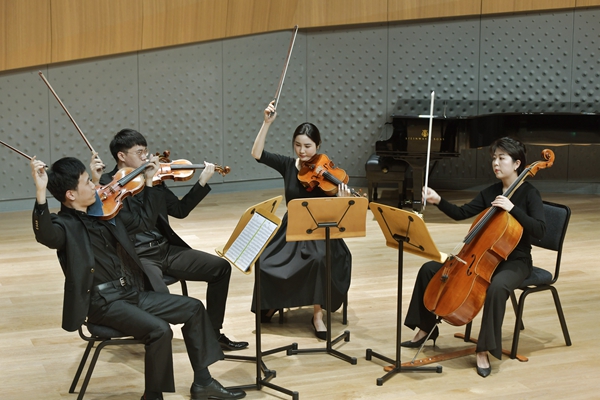

Apart from work by Haydn, the quartet's tour program consists of Shostakovich's String Quartet No. 8, in C Minor, Op. 110, Maurice Ravel's String Quartet in F Major, Beethoven's String Quartet No. 4, Op. 18, and String Quartet No. 4 by Bela Bartok.
Though the Mila Quartet is still young, it had already performed at two major venues before beginning its current tour: Tianjin Grand Theater and the Forbidden City Concert Hall in Beijing.
Chamber music, composed for smaller groups, does not quite have the grandeur of music played by symphony orchestras in large concert halls or theaters, but is performed in smaller venues with no conductor.
As the appreciation of Chinese audiences for Western classical music grows, so too has the number of venues for chamber music in every corner of the country, in small concert halls, galleries, museums, commercial areas and sometimes even in tranquil, secluded gardens.
For classical aficionados, of course, music is the main draw of any chamber music series. For others, chamber music offers a more intimate experience of classical music. Chamber music also highlights individual players, who express their subtle and refined musical skills and ideas with their instruments.
Zhu, 27, the Mila Quartet's first violinist, was introduced to the instrument by his grandfather, a classical music lover. Zhu began to play when he was 3 and moved to Beijing to study at the primary school affiliated to the Central Conservatory of Music. From 2013 to 2019 he studied at the Manhattan School of Music in New York and received his bachelor's and master's degrees in Violin Performance there before returning to China to work with the symphony orchestra of the Central Conservatory of Music.
Ci, 26, the quartet's second violinist, has been a friend of Zhu since they met in the Central Conservatory of Music middle school. They both later worked with the conservatory's symphony orchestra.
When COVID-19 broke out early last year orchestras around the world all but fell silent.